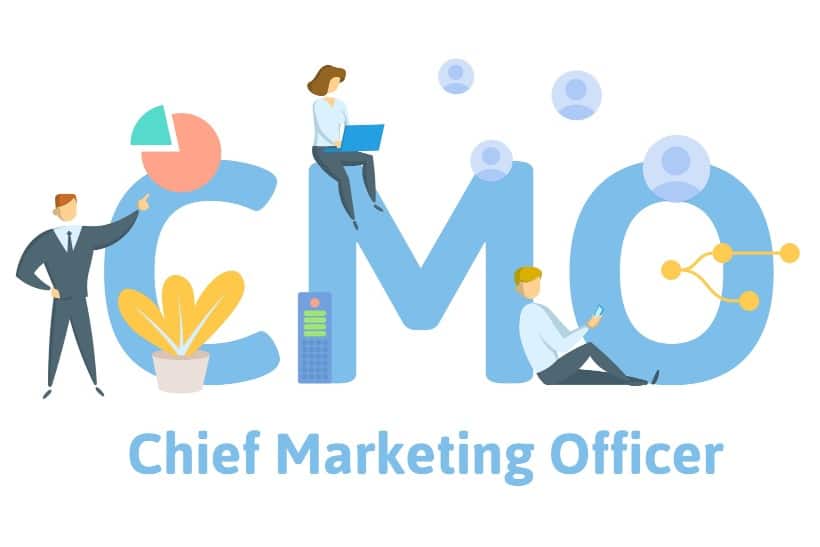You’ve heard it before: Marketing is the new product. And you probably agree—your brand is everything. Yet with all the buzz around marketing, it can be difficult to understand how and when to hire a chief marketing officer (CMO). That’s why we’re here! We’ll walk you through some questions and considerations that will help you determine if hiring a CMO makes sense for your company right now.
What Makes You Want a CMO?
What’s your goal with this hire? Are you looking for someone who can shape the overall marketing strategy, or are you after someone who can execute on the ground floor? There are plenty of other positions that can help with both of these functions—a chief experience officer (CXO), for example, who is responsible for customer experience across every touchpoint. Or perhaps your company is small and doesn’t have the resources to have a dedicated head of marketing, but could benefit from getting some outside expertise in order to get its first program off the ground. In this case, a consultant could be just what the doctor ordered.
What type of person do you need? Is their role going to be more “hacker” than “marketer?” Or vice versa? Do they need to be able to speak both languages fluently in order to lead an integrated team effectively? If so, you may be better off looking for someone who has experience leading integrated teams or who has the technical chops to be able to hack it themselves. Or do you need a person with more of a “big picture” mindset? If this is the case, then maybe an HR professional or business analyst would be a better fit.
What Is Your Current Investment in Marketing?
You might be thinking to yourself, “I’ll be the first real marketing hire!” If that’s the case, you should take a look at your current investment in marketing.
What is your spend on marketing programs? Do you have one person doing all of the work or do several people have some ownership over different aspects of the program? Do you have a budget to hire a marketing director? If not, then you may need to take a step back and think about how the role will fit into your organization. How Much Control Will You Give Them? As a founder or CEO, you probably have your own ideas about what works and what doesn’t when it comes to marketing.
What are your expectations and budget for building out a marketing function? How much time will it take for someone to learn our business well enough to contribute meaningfully at this early stage of growth?
Who Owns Revenue?
The default answer to this question is typically the head of sales. But where does that leave the CMO?
The CMO should be involved in the sales process, including lead generation and nurturing, pricing strategy and negotiation, contract negotiations and contract management. The CMO will also likely play an important role in customer experience management because he or she can provide insights into what customers need from their interactions with your organization.
If you intend for those functions to be owned by the CMO, doesn’t that person effectively own a portion of revenue as well? This is a tough question to answer because it depends on how you define revenue. If you’re referring specifically to sales, I would say no. The CMO should be involved in the sales process, including lead generation and nurturing, pricing strategy and negotiation, contract negotiations and contract management.
Even with those roles in-place however, the marketing function is often broken out separately. Do you intend for your CRO/CCO to report directly to your CEO? If not then what dependencies does your CRO/CCO have on the marketing function for his or her success (e.g., analytics)? It’s important that the CMO understands the role of the CRO/CCO and works with him or her on a daily basis. In fact, a lot of companies have their CRO reporting to the CMO rather than directly to the CEO because they recognize that marketing needs to be involved at every level of the funnel.
How Important is Brand to Your Success?
Your business is about to grow. You want to expand your brand, but there are so many options. How do you know where to start?
Many companies assume that their brand is the most important thing they have and they need someone who can protect it. In reality, building a strong and differentiated brand is only half of the battle—if it’s not backed up by an engaging customer experience, then all your hard work has just been flushed down the toilet (or thrown out with last year’s marketing budget).
If this sounds familiar, this may be an indication that you need a Chief Marketing Officer (CMO).
At the end of the day, it’s important to remember that you’re hiring a CMO because they can help grow your business. They should understand your brand, know how to position it in the market and have experience working with other C-level executives. It’s up to you as an employer to decide whether or not they fit into your company culture and vision by asking questions like “How will this person add value?” We hope this article has given some insight into what makes a good CMO candidate so we can all hire better leaders!




